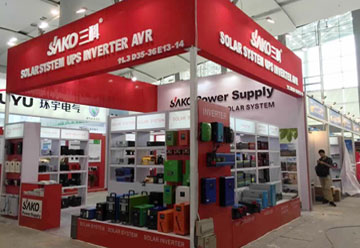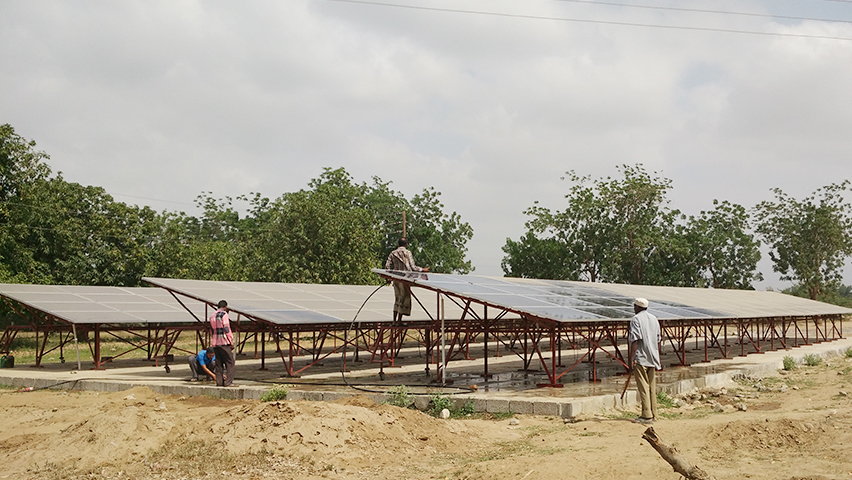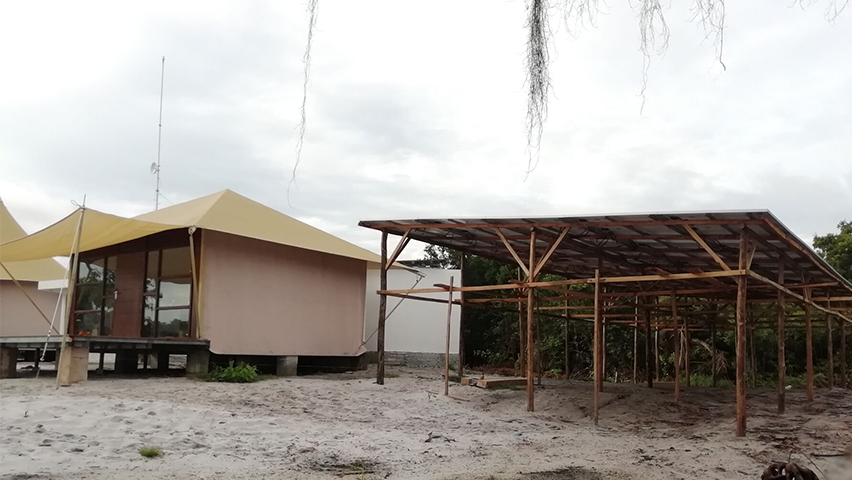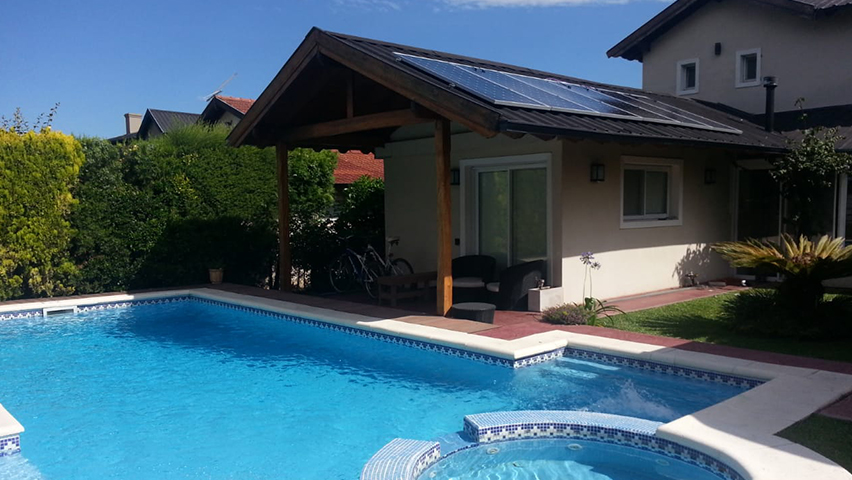Inverter solar power systems convert solar radiation into energy that is accessible to people. Various inverters are available on the market: grid-connected inverters, off-grid inverters, and hybrid inverters. In this blog, SAKO will delve into the pros and cons of the most common system: the hybrid solar inverter, and compare it to an off-grid solar inverter.
What is a hybrid solar inverter?
A hybrid solar inverter generates electricity exactly the same way as a normal string solar inverter, except that it has a built-in battery connection that allows energy to be stored for future use. This battery backup facility allows most hybrid systems to serve as a backup power source even in the event of a power failure. Applying the SAKO hybrid solar inverter allows you to simultaneously control power from solar panels, solar cells, and the utility grid.
Pros of a hybrid solar inverter:
- Capable of expansion
Hybrid systems are probably the most expandable and future-proof home solar setups. For some customizable hybrid systems, you can expand the capacity by purchasing more panels or batteries.
- Feedback to grid
Hybrid solar systems can be described as grid-tied solar with additional battery storage. In a hybrid solar system, the energy generated from the solar panels is first used to serve the household’s electrical load. After the household’s energy needs have been met, solar energy is used to recharge the solar cells. If there is still solar energy left over, it is exported to the grid in exchange for credits.
- Battery saving
Hybrid solar systems are battery-based grid-tied inverters. They draw power from the battery bank and synchronize it with the utility grid. This way, you can save the electricity generated by the panels during the day and use it later when the light is insufficient. Find out how the SAKO solar and battery-saving system can help make your home more energy independent.
Cons of a hybrid solar inverter:
- High qualification and certificates requirements
As one of the appliances closely related to people’s lives, the hybrid solar inverters on sale should obtain the relevant certificates of conformity. The test certificate submitted should meet the minimum requirements of certain standards for capacity testing, ampere-hour efficiency testing, watt-hour efficiency testing, and self-discharge testing. In addition, the NABCEP is the industry gold standard for solar certification and certification.
What is an off-grid solar inverter?
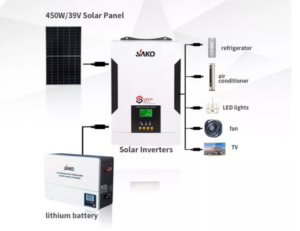
Off-grid solar inverters are designed to work alone without connecting to the utility grid. In more detail, the off-grid solar inverter converts the DC power taken directly from the battery source charged by the solar array into AC power to supply the appliances.
Pros of an off-grid solar inverter:
- Complete energy independence
You will be in a position of complete energy independence. Being free of grid connection means liberating yourself from the risk of power cuts or fluctuating electricity bills. As you are the producer of your own electricity, you get a lot of freedom if your energy needs are not too high.
- More eco-friendly and sustainable
It can be the most environmentally friendly and sustainable home energy setup. Without the grid, you can minimize your carbon footprint. Your system will not contribute to water pollution and greenhouse gases, except for the rare times when you may rely on a generator.
Cons of an off-grid solar inverter:
- No ‘security’ from using the grid as backup
There is nothing ‘safe’ about using the grid as a backup. You cannot rely on power from the grid in the event of bad weather or when your system needs to be repaired.
- More panels and large-capacity batteries are needed to power a house
Should you intend to power your entire home, you will need more panels and larger-capacity batteries. Batteries and generators are important, but they have a higher initial cost. Batteries have a limited lifespan and require maintenance, so these costs should also be taken into account.
- Must use power sparingly
You must strictly monitor your use of energy and your lifestyle. With off-grid solar inverters, you have to use electricity in a controlled manner. This may require a big change in lifestyle, such as using most of your electricity during the day or severely limiting your activities at night.
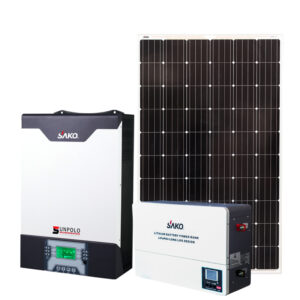
Off-grid and hybrid solar inverters are both great ways to go solar, but the right choice depends on your unique situation. Unfortunately, this can be challenging to deal with when you’re busy building your dream home.
To make it easier, talk to a solar expert who can help you with all the issues involved. Contact the expert advisors at SAKO today.

